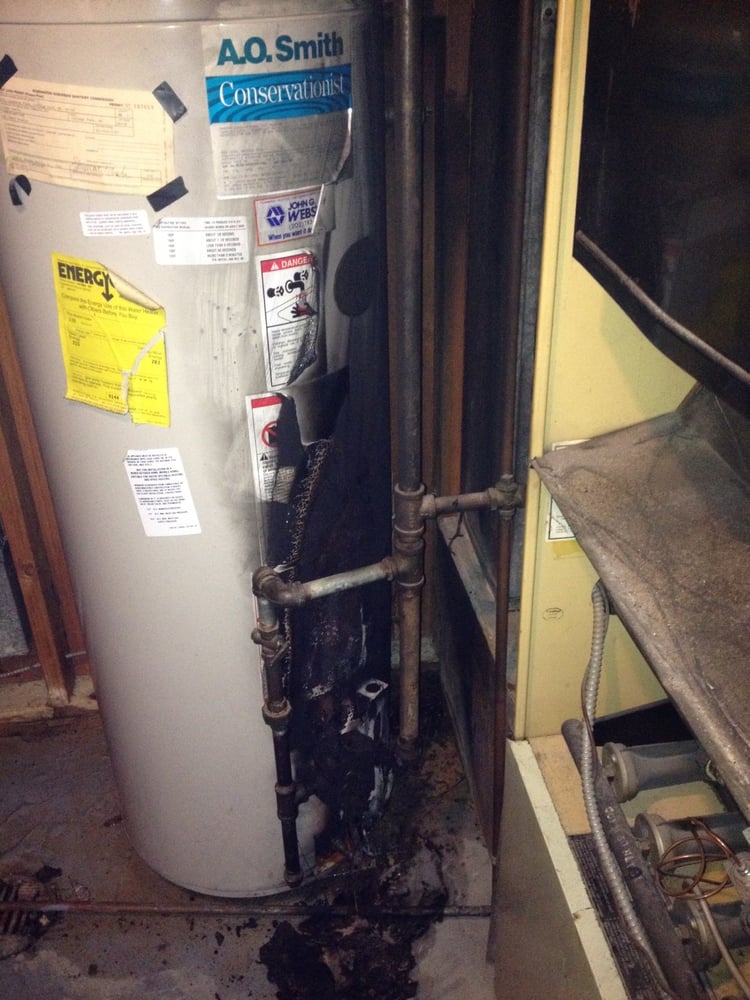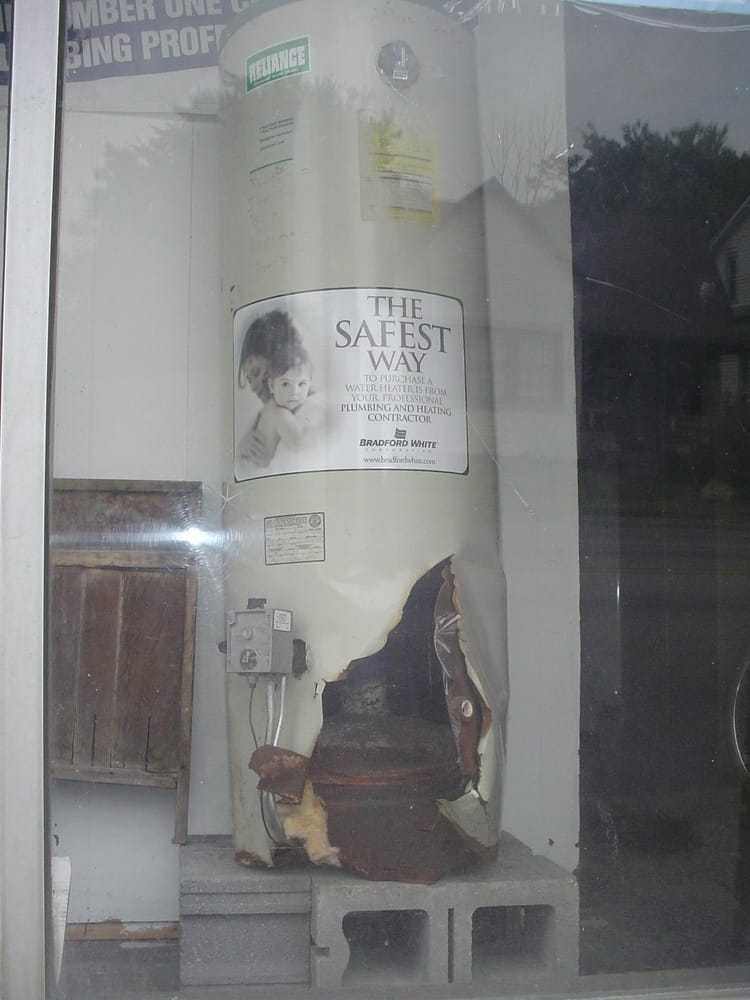Hi All,
I'm not sure why, but lately I have been overcome with this intense fear that our water heater is going to explode..like on that Mythbusters episode where they prove it can happen. Here is a little bit about our water heater:
For one thing, we rent, so it isn't technically ours (so I understand I personally can't make any repairs on it), but it is a 40 Gallon Richmond Natural Gas Water Heater. I don't think my landlord has ever had it professionally cleaned or inspected. When I look at the flame(which seems to be half orange half blue by the way), as it's reheating the water, I can see a TON of soot buildup on the burner. We also have soot on top of the water heater that I don't know if it's ever been cleaned off. I am aware of the carbon monoxide dangers of improper combustion and we do have a couple detectors installed.
Here is the kicker - I know I can (and should) test the TPR valve to make sure it's working properly - but he has the red tube the water would come out of installed into the ground! It literally goes from the valve into the floor where it's sealed in there; so even if I test the valve, how would I know if it's working? I have no way to see the water coming out and I have no idea where this hose goes too. I checked behind the house and can't see anything that would indicate it flows out there.
Finally, I'm pretty sure our state is a closed water system and we do not have a pressure relief tank, or pressure expansion tank whichever it's called. Which only makes me worry more!
So here is my question: Yes I know I need to talk to him about the concerns we see, however....just to ease my worries....is it a bad idea to turn the water heater to "off" every day and turn it back "on" only before taking a shower to get hot water? I really onlt want the hot water for a shower....I can do cold for everything else. Would that even protect against an explosion? Or is it a bad idea to have the pilot light turn on and off every single day and could result in a gas buildup or anything else? I'm just looking for something to relieve this fear! Any advice welcome!
I'm not sure why, but lately I have been overcome with this intense fear that our water heater is going to explode..like on that Mythbusters episode where they prove it can happen. Here is a little bit about our water heater:
For one thing, we rent, so it isn't technically ours (so I understand I personally can't make any repairs on it), but it is a 40 Gallon Richmond Natural Gas Water Heater. I don't think my landlord has ever had it professionally cleaned or inspected. When I look at the flame(which seems to be half orange half blue by the way), as it's reheating the water, I can see a TON of soot buildup on the burner. We also have soot on top of the water heater that I don't know if it's ever been cleaned off. I am aware of the carbon monoxide dangers of improper combustion and we do have a couple detectors installed.
Here is the kicker - I know I can (and should) test the TPR valve to make sure it's working properly - but he has the red tube the water would come out of installed into the ground! It literally goes from the valve into the floor where it's sealed in there; so even if I test the valve, how would I know if it's working? I have no way to see the water coming out and I have no idea where this hose goes too. I checked behind the house and can't see anything that would indicate it flows out there.
Finally, I'm pretty sure our state is a closed water system and we do not have a pressure relief tank, or pressure expansion tank whichever it's called. Which only makes me worry more!
So here is my question: Yes I know I need to talk to him about the concerns we see, however....just to ease my worries....is it a bad idea to turn the water heater to "off" every day and turn it back "on" only before taking a shower to get hot water? I really onlt want the hot water for a shower....I can do cold for everything else. Would that even protect against an explosion? Or is it a bad idea to have the pilot light turn on and off every single day and could result in a gas buildup or anything else? I'm just looking for something to relieve this fear! Any advice welcome!


